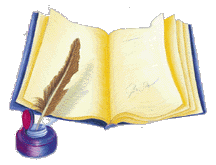

Offers Books Autographed by Best Selling Authors
& the Best of Yet to be Discovered New England Authors


|
David Gessner, Author & Rhode Island Resident David Gessner, author of Under the Devil’s Thumb and the forthcoming Return of the Osprey, teaches creative nonfiction at Harvard Extension School. |
|
Under the Devil's Thumb David Gessner |
This is a story of regeneration, of the healing that can come through falling in love with where we live. At thirty I first moved West because sickness had soured me on my former life. I ran away from pills, needles, and hospitals, and tried to find a new place. I did find that place, but also more. The West has long been our national symbol of rebirth, and it was here that I grew healthy and strong again, here that I met and married my wife, and here that my first book was accepted for publication. Here old notions of myself began to break up, and I-or rather the place I'd come to-started revising the story of my life.
More and more I believe that stories and place are what hold up together, as well as what keep us whole. And our stories must meet the challenge of our lives. Over the last six years cancer has ripped through my family-scarring me, killing my father, leaving my mother bereaved, uprooting my brother-and what this has taught me, again and again, is that in the face of chaos and nothingness we must stick to our best stories. Not stories beamed from a box or blazing off a supermarket magazine cover but those that grow out of the ground, that flow up out of the dirt or sand or water through the veins of our toes and legs and torsos until, last and least, they reach our brains. Hardcover Signed Editions $ 18.95 |
|
A Wild, Rank Place: One Year on Cape Cod David Gessner |
Cape Cod, that sandy, wind-swept enchantress, has captivated many writers, among them Henry David Thoreau, whose descriptions of that “wild, rank place” have fired the imaginations of not one but many generations. Among Thoreau’s literary progeny is David Gessner, but this book goes far beyond the naturalist’s focus on the transcendent beauty of the landscape. Rather, Gessner combines his deeply felt sense of place with observations of the Cape’s people and with insights about his family, himself, and his art. In a series of interconnected personal essays, he explores his response to his own recently cured cancer and to the lung cancer that is killing his father. Issues of life and death intertwine with images of a land that Gessner finds curiously healing: “Here thoughts are swamped by the smells, sounds, and sights of place. The gentle hypnotic lapping of waves. A prehistoric cormorant on a slick black rock. The delicate lacework of sea grass roots breaking down through a ledge of sand.”
Gessner’s introspection during a year spent writing in the family’s weathered cottage portrays another struggle, too. For a young writer just beginning his career, such mighty literary forebears as Thoreau can be imposing, if not paralyzing. Yet the process of sorting through and making peace with the memories of his genetic father gives Gessner the power to declare artistic independence from his literary one. Seeing “something tremendously heroic” about his father’s determination to perform mundane tasks in the face of imminent death brings Gessner to realize that “our minds have minds of their own. Reality is fabulous, yes, but we also crave something more. Symbol, perhaps. Meaning.” In the end, what Cape Cod comes to mean for Gessner is not just freedom from the past, but love and nobility in the face of death. Paperback Signed Editions $ 16.95 |
| Home | Award Winning Titles | Guest Book | Win a Free Book Write a Review | Contact Us | Customer Service | Help | Back to the Top |
|
|
|